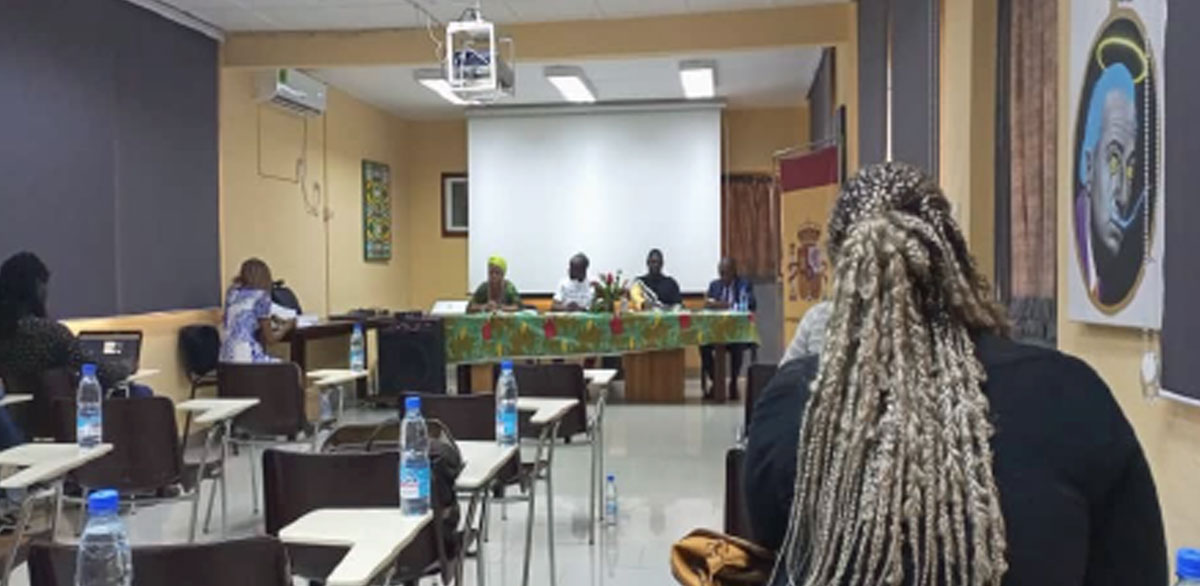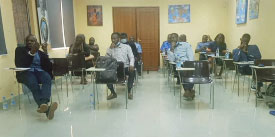A leading LGBTI rights organization in Cameroon, Alternatives Cameroon, held a conference with key decision makers to help improve access to health services for LGBTI people, but some attendees highlighted the legal, institutional, and social barriers to advancing LGBTI rights in the West African country.

Speakers discuss improving access to health services for LGBTI people at a conference held by Alternatives-Cameroon, Friday, July 22, 2022.
By Akam Monthe
As part of its relentless fight against violence and violations against sexual and gender minorities, Alternatives Cameroon organized a conference on the vulnerability of key populations to access health services in the capital Yaoundé on Friday, July 22, 2022.
The workshop was held in a safe environment and was led by one of the mainstays of the LGBTI community in Cameroon, Jean Jacques Dissoke, the advocacy officer at Alternatives Cameroon.

Alternatives Cameroon is trying to improve access to health services for LGBT people in a country where homosexuality is criminalized.
The goal of the conference was to contribute to a 25% reduction in obstacles faced by key populations in accessing quality health services by 2023, by improving the knowledge of 25 key actors on the vulnerabilities of LGBT people and combatting gender-based violence. Among those present were law enforcement, community members, journalists and a magistrate.
The conference noted that LGBTI people who allow their sexual orientation and gender identity to be expressed face a lot of discrimination and stigmatization, and are consequently rejected in health facilities. That pushes them away from treatment and makes them more vulnerable to HIV infection and violence.
However, the magistrate’s speech highlighted the difficulties of addressing these issues, given the reality of Cameroonian law and society. Rather than promote tolerance and support for LGBTI people, she noted that the Penal Code’s article 347.1 prohibits homosexuality and, because of that, she cannot support or defend homosexuality even as she acknowledged the fact that homosexuality is a natural part of human sexuality. She urged journalists and media to be more “responsible,” claiming that in Cameroon officials already “support” LGBTI people enough and adding that encouraging LGBTI people would be to encourage them to harm themselves. She also invited the gathering to sensitize the LGBTI community to practice more discretion and not be led into social depravity.
As recommendations, the gathering agreed to focus on lobbying, advocacy, and working with filmmakers and media on the issue of LGBT rights in Cameroon.
Akam Monthe, the author of this article, is an activist for LGBTI rights in Cameroon who writes under a pseudonym. Contact him at [email protected].
Source: African Human Rights Media Network member Erasing 76 Crimes.
COMMENTS